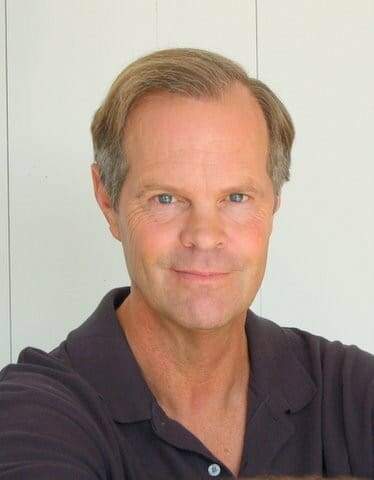Say No to Biggest Loser: A Better Way to Thrive in 2025
Introduction to Weight Loss Competitions
As the new year begins, many of us start thinking about ways to lose weight, and one popular method is joining weight loss competitions like the Biggest Loser. These contests promise rapid results and a sense of camaraderie among participants, but they often come with hidden pitfalls. While the competitive nature and potential for quick success can be appealing, it’s important to recognize that these competitions frequently prioritize short-term gains over long-term health.
Participants often find themselves in a cycle of intense dieting and Exercise, which can lead to quick weight loss initially. However, these methods are often extreme and unsustainable, making it difficult to maintain the results. The initial weight loss can be exciting, but without a solid plan for maintaining those results, many people find themselves back at square one, or worse, gaining even more weight than they originally lost.
Moreover, weight loss competitions can foster an unhealthy relationship with food and exercise. The focus on winning can drive participants to engage in restrictive eating patterns and overly strenuous workouts, which are not conducive to long-term well-being. This can result in feelings of failure and frustration when the competition ends and the weight inevitably returns.
It’s also worth noting that these contests rarely address the underlying factors that contribute to weight gain, such as emotional eating, Stress, and lack of Sleep. By not tackling these root issues, the cycle of losing and gaining weight is likely to continue.
Understanding the limitations and potential downsides of weight loss competitions can help you make more informed decisions about your approach to weight loss and overall health.
The Unseen Drawbacks of Weight Loss Challenges
Weight loss challenges can indeed offer short-term results, but they rarely translate into long-term success. Participants often experience an initial drop in weight, only to find themselves gaining it back soon after. This yo-yo effect occurs because the methods employed to shed pounds quickly are usually not sustainable or healthy in the long run. Kevin Hall, a researcher from the NIH who studied the Biggest Loser contestants, compared this phenomenon to a spring: the more it’s stretched, the harder it pulls back. This analogy highlights the cyclical nature of these challenges, which can lead to frustration and discouragement.
Another critical issue is that rapid weight loss often doesn’t equate to fat loss. Participants may lose muscle mass and water weight, which can negatively impact overall health. Additionally, such quick fixes can wreak havoc on your metabolism. Research has shown that during the Biggest Loser competitions, participants experienced a decrease in leptin levels, a hormone that helps regulate food intake and energy expenditure. This reduction didn’t bounce back to normal levels, even after the contestants regained the weight, resulting in increased hunger. These physiological changes can make it challenging to maintain weight loss over time and may even lead to further weight gain.
Additionally, weight loss competitions often foster an unhealthy relationship with food and exercise. The focus on winning can drive participants to engage in restrictive eating patterns and overly strenuous workouts. This mentality can result in feelings of failure and frustration when the competition ends, and the weight inevitably returns. Weight loss challenges rarely address the root causes of weight gain, such as emotional eating, stress, and lack of sleep, leading to a perpetuating cycle of weight fluctuations.
Effects on Your Body
Rapid weight loss methods often lead to a loss of muscle mass and water weight, rather than the desired fat loss. This can negatively impact your overall health, as muscle mass is crucial for maintaining a healthy metabolism. When you lose muscle, your body burns fewer calories at rest, making it easier to regain weight once the competition ends.
Quick weight loss strategies can also cause significant changes in your hormone levels. Research has shown that during the Biggest Loser competitions, participants experienced a decrease in leptin levels, a hormone that helps regulate food intake and energy expenditure. This reduction didn’t bounce back to normal levels, even after the contestants regained the weight, resulting in increased hunger. These hormonal imbalances can create a persistent feeling of hunger and make it challenging to maintain any weight loss achieved during the competition.
Moreover, extreme dieting and exercise regimens can place a tremendous amount of stress on your body. This added stress can lead to a weakened immune system, making you more susceptible to illnesses. It can also cause fatigue and decreased energy levels, making it difficult to engage in regular physical activities or maintain productivity in your daily life.
Lastly, the focus on rapid results can overshadow the importance of developing sustainable, healthy habits. Instead of learning how to balance your Diet and exercise in a way that you can maintain long-term, you may resort to unhealthy behaviors that are only effective in the short term. This not only undermines your efforts to lose weight but can also lead to long-term damage to your overall health and well-being.
Long-term Planning Over Quick Solutions
Achieving lasting health and weight loss isn’t about chasing quick fixes; it’s about embracing long-term planning and sustainable habits. Rather than focusing on temporary results, prioritize building a Lifestyle that you can maintain over time. This means developing habits that promote overall well-being, such as incorporating regular exercise and balanced nutrition into your daily routine.
The goal is to make these healthy choices a natural part of your life, rather than a temporary solution to lose a few pounds. For example, instead of engaging in extreme diets that cut out entire food groups, aim for a balanced diet that includes a variety of nutrients. This approach not only supports weight loss but also ensures that your body gets the vitamins and minerals it needs to function optimally.
When it comes to exercise, find activities that you enjoy and can see yourself doing long-term. This could be anything from joining a dance class to taking up cycling. The key is to make physical activity enjoyable, so it becomes a regular part of your routine rather than a chore.
Additionally, addressing the emotional and psychological aspects of weight gain is crucial. Factors like stress, lack of sleep, and emotional eating can significantly impact your ability to maintain a healthy weight. By acknowledging and addressing these underlying issues, you set yourself up for long-term success.
Building a supportive environment is also essential. Surround yourself with people who encourage your healthy habits and support your goals. This can make a significant difference in your ability to stick with your new lifestyle changes.
By focusing on these sustainable habits and long-term planning, you create a foundation for lasting health and well-being.
Three Strategies to Succeed in 2025
As you set your sights on 2025, consider adopting these three strategies to thrive:
1. Set Realistic and Achievable Goals: Define what success looks like for you by setting small, incremental goals. This approach builds confidence and keeps you motivated. Aim for gradual changes that are easy to incorporate into your daily routine.
2. Incorporate Regular Physical Activity You Enjoy: Find an exercise routine that you genuinely enjoy, whether it’s dancing, hiking, or Yoga. When physical activity is fun and rewarding, it becomes a natural part of your daily life. This increases the likelihood that you’ll stick with it over the long term.
3. Prioritize Balanced Nutrition Without Restrictions: Focus on nourishing your body with a balanced diet rather than imposing strict restrictions. Embrace a variety of foods and listen to your body’s hunger cues. This mindset helps foster a healthy relationship with food and ensures your body gets the nutrients it needs.
By implementing these strategies, you set yourself up for a healthier and more sustainable lifestyle.
Conclusion: Success Beyond the Scale
Achieving true success in your wellness journey means looking beyond the numbers on a scale. It’s about celebrating improvements in overall health, energy levels, and mental well-being. The pursuit of weight loss should be part of a broader commitment to creating a balanced and healthy lifestyle. Instead of focusing solely on losing pounds, aim to cultivate habits that contribute to your overall well-being.
Building a healthier relationship with food is crucial. Rather than viewing food as the enemy, see it as nourishment that fuels your body. Listen to your hunger cues and give yourself permission to enjoy a wide variety of foods. This approach reduces the risk of developing an unhealthy relationship with eating and supports long-term nutritional health.
Similarly, finding joy in physical activity can transform your approach to fitness. When you engage in activities you love, exercise becomes less of a chore and more of a rewarding experience. Whether it’s dancing, hiking, or practicing yoga, making exercise enjoyable increases the likelihood that you’ll stick with it.
Mental and emotional health are equally important. Stress, lack of sleep, and emotional eating can significantly impact your ability to maintain a healthy lifestyle. Addressing these factors through mindfulness, adequate rest, and emotional support can help you achieve a balanced state of well-being.
Lastly, surround yourself with a supportive community. Whether it’s friends, family, or a health professional, having people who encourage your healthy habits can make a significant difference. By focusing on these holistic aspects of health, you pave the way for lasting success that goes beyond mere numbers, setting the stage for a truly thriving 2025.

























